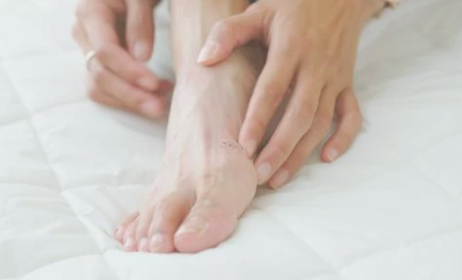Pompholyx eczema
Pompholyx eczema (also known as ‘dyshidrotic eczema’) is a type of eczema that affects the hands and feet. It involves the development of intensely itchy, watery blisters, affecting the sides of the fingers, the palms of the hands and soles of the feet. Some people have pompholyx eczema on their hands and/or feet with other types of eczema elsewhere on the body. This condition can occur at any age but is usually seen in adults under 40 and is more common in women.
What causes pompholyx?
The exact cause is not known (as with eczema). However, there seem to be some factors which might be involved in causing or triggering this condition. These are:
- Metals such as nickel or cobalt (either on the skin or in food).
- An antibiotic called neomycin (this is not often used).
- Emotional stress.
- Certain chemicals – e.g. perfumes.
- Fungal/bacterial infection of the skin.
- A rare form that runs in families has also been discovered.
- A link with HIV infection and its treatment has been identified.
Pompholyx may be aggravated by anything which is irritant to the skin, such as detergents, various solvent-type chemicals and water (if there is frequent or prolonged contact with water).
How is pompholyx eczema diagnosed?
It is a clinical diagnosis as the history and clinical appearances are typical when other causes are excluded.
- Unilateral involvement is suspicious for a fungal infection (eg, tinea manuum or tinea pedis) as well as skin scrapings should be taken for mycology.
- Patch testing may be considered in chronic or atypical cases where there is a suspicion of an allergic contact cause.
- Skin biopsy is rarely necessary and shows a spongiotic eczema.
Are you suffering from any foot condition? At The Chelsea Clinic, we can help. One of our podiatrist can assist and then recommend what treatments are best to get you back on track. Podiatrist South Kensington
Schedule an appointment here or you may call us at +44 (0) 207 101 4000.
We hope you have a feetastic day!
-The Chelsea Clinic and Team




